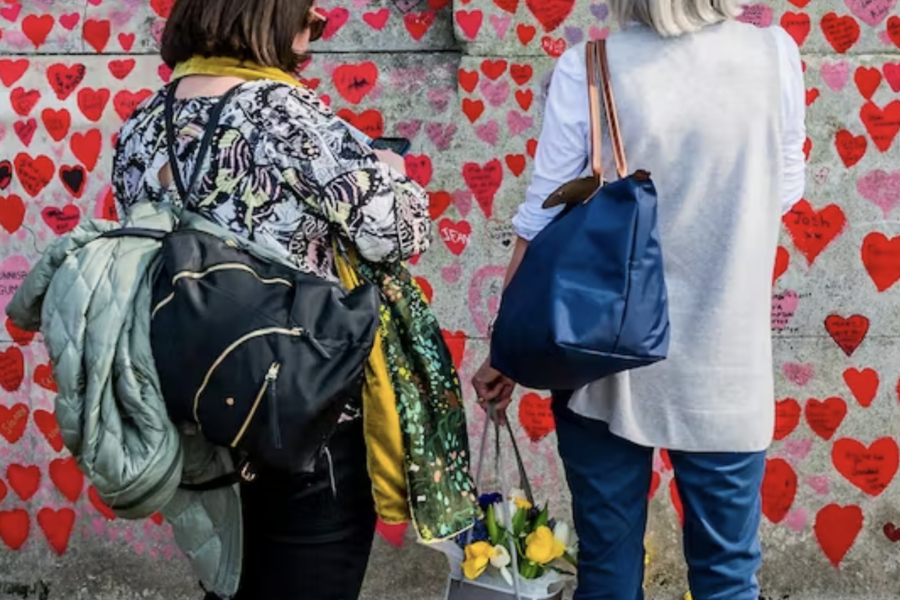Whether an actual bereavement or a loss of experience, everyone has lost something to COVID. From early on in the pandemic, grassroots memorials sought to acknowledge this collective experience, including the national COVID memorial wall in London and the annual national day of reflection organised by the Marie Curie charity.
In September 2023, the UK Commission on COVID Commemoration released its final report on how a more official reckoning with the pandemic’s legacy should be shaped. It outlines ten recommendations.
The pandemic has affected people in vastly different ways. How governments, institutions and the wider public have responded has varied enormously, too. It is also still ongoing, which complicates things further.
New variants of the virus are on the rise. And nearly two million people in the UK alone continue to suffer with long COVID.
As immunologist Sheena Cruickshank put it recently, “it may feel like we should all be done with COVID-19, but sadly COVID-19 is not done with us”.
My research into memorial culture and modernism shows how the lack of a clear or coherent narrative for an event like a pandemic makes commemorating it that much harder. The official and cultural memory of the 1918 flu pandemic was subsumed into that of the first world war – and it remained largely unremembered, until COVID brought it back to public attention.
